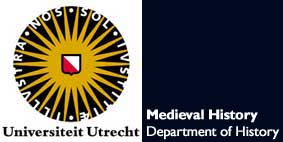 |
CulturalMemoryandtheResourcesofthepast |
|
|
|
THE
EXCHANGE OF LEARNING IN This project explores the interplay of politics and dissemination of scholarship in eighth- and early ninth-century Bavaria, with a particular focus on canon law. This research is based on the supposition that the reception of works of learning depended on a combination of institutional and personal scholarly preferences, coupled with regional interests in particular genres, and occasional as well as perennial prejudices. This is not only evident in the effort taken to copy a specific text, but also by the critical act of including passages from a given text in florilegia or collections of one's own making. While this is true for scholars in every region of Western Europe in the early Middle Ages, those from Bavaria find themselves in a special position in this period. Not only is Bavaria positioned at the crossroads of many scholarly traditions, with (historic and geographic) connections with Lombard Italy, Rome, Francia, Anglo-Saxon England, and Ireland, it is also involved in a stretched-out political struggle that fuels debates about Bavarian identity and autonomy. The availability of works from different learned traditions was particularly significant in the context of texts directly related to the church reforms, i.e. canon law, penitentials, exegesis, and moral treatises. The use and dissemination of learning thereby became a fundamental tool in the construction of Bavarian learned identity. At the same time, the Bavarian revival of learning had political significance from the outset. Like their (ultimately more successful) Carolingian overlords and kinsmen, and in competition with the Frankish church, the Agilolfing dukes and their learned circle attempted to create a divinely favoured polity based upon the principle of correct biblical interpretation and authoritative ecclesiastical tradition. The resulting tensions created a burgeoning scholarly tradition supported by churchmen like Arbeo of Freising and the bishops Virgil and Arn of Salzburg. The most tangible result is a sharp increase of book production in Bavaria in the eighth century, but it also produced some valuable early Bavarian works of scholarship. This project therefore aims to determine the extent to which politics were interwoven with the learned tradition in Bavaria, and how political allegiances shaped the exchange of ideas. It also intends to identify the primary institutions and intellectual communities in Bavaria that facilitated and stimulated the spread of scholarship and the dynamics of their relationships, and to establish the role played by identity and self-perception in the dissemination and creation of canonical learning. |

